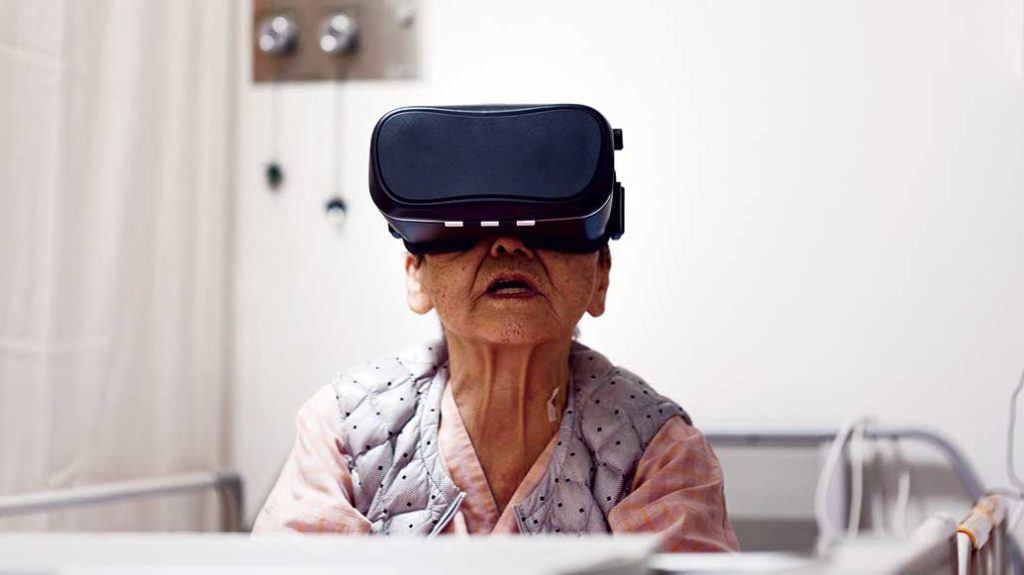
If users of virtual reality — such as senior living residents on a “world tour” — can imagine they are present in a digital environment, then VR providers may not have to imagine shelling out more and more money for new headsets or other features.
While developers continue to find more uses for virtual reality programming, advances in the tech may not be as important to users as what they bring themselves: their imagination.
The “significant” role of imagination in VR use comes from a new study out of the University of Bath in England.
“Imagination is an important component in the formation of presence,” co-author Christopher Clarke, PhD, said in a statement. “The better a person’s imagination, the more able they are to find themselves in that world.”
This confirmation could have implications for how, and when, providers pursue new upgrades and equipment.
“Technical improvements come with prohibitive costs and expertise that are still not always feasible for consumer-grade HMDs and virtual experiences,” the study authors write.
The research showed imaginative buy-in was equally important for exploring a VR space or interacting with others within it, but they did not delve deeply into different uses of VR. Study authors acknowledged the limitations and suggested they may explore this in future analysis.
One of the lead authors, however, did acknowledge in a statement this week that “this is definitely an area that needs more exploration if people and organizations are to integrate VR into their lives,” specifically citing medical rehab and workforce training as focus areas.
The realistic nature of a digital environment could mean more in the context of training nurses or clinicians.
And the study did not explore how “imagination” could be affected in those living with cognitive disorders, such as older adults with dementia. A common target for VR applications that reacquaint outpatients with their home environments.
Earlier this year, the University of Bath also co-led a study on a kind of “fastball” test for Alzheimer’s that also uses virtual programming.


